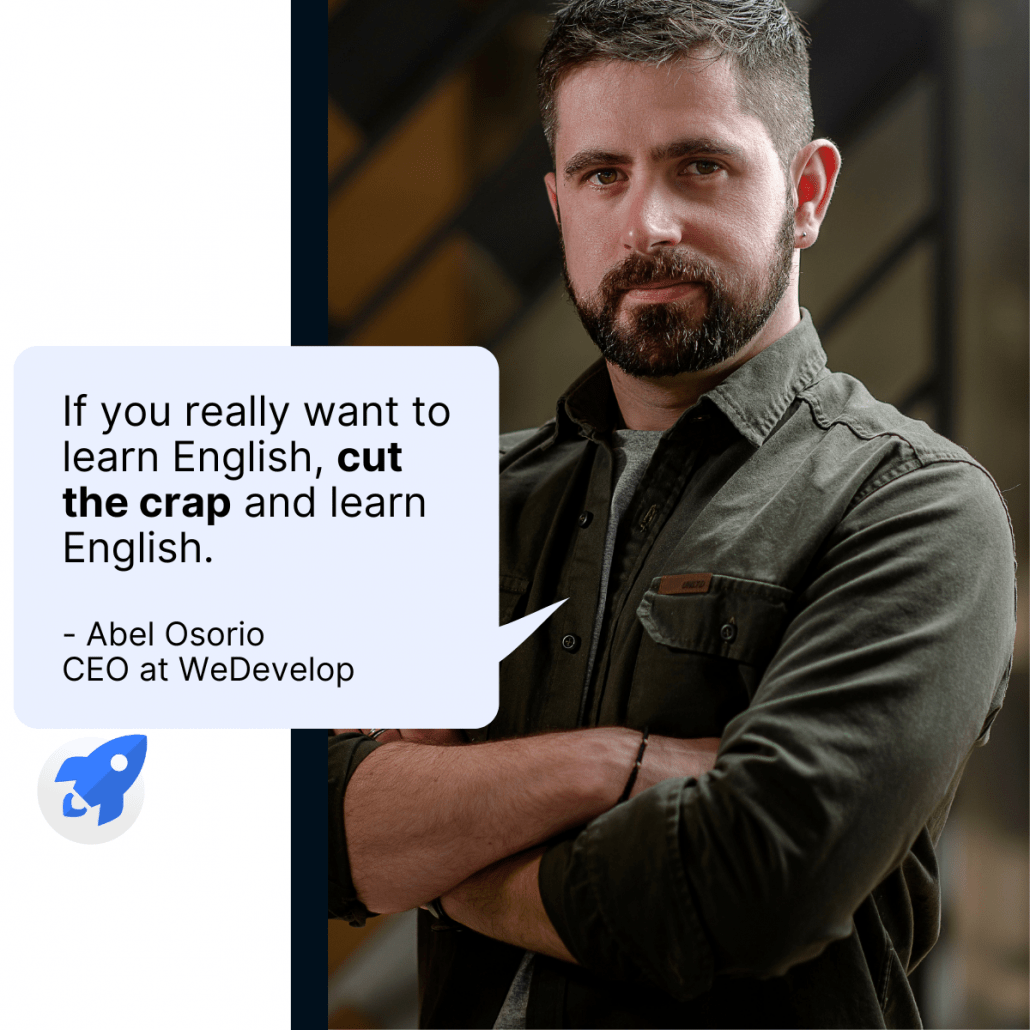Learning English is a journey. I’m Abel, and I have been on this journey for 7 years. In the first year, I managed to speak fluidly, but mastering the language is an ongoing process. Just like leading my company, where I promote circular dynamics, I believe there’s a need to reshape the way we approach learning English. Traditional methods aren’t enough; we must reimagine teachers as facilitators or coaches.
The Journey of Learning English
When children learn their first language, they don’t sit in a classroom (not all the time, though). They learn from interacting with their surroundings – their family, friends, and the environment. This organic, immersive way of learning is effective. If we aim to teach English or any second language, we must make the process as natural as possible.
Why Traditional English Classes Don’t Always Work
Many people spend years in English classes without gaining the confidence to speak. Traditional classes can become a form of procrastination. You might feel you’re making progress because you attend classes, but without real-world practice, it’s hard to become fluent. The focus shouldn’t be solely on the classroom but on practical, everyday use.
Teachers: From Leaders to Facilitators
In my company, I’ve seen how powerful a shift from top-down leadership to circular dynamics can be. Everyone has a voice, and everyone is a leader in their own right. This approach can revolutionize English education. Instead of teachers being the sole leaders, directing every activity, they should transition to being facilitators or coaches. Their role should evolve to guide learners, offering them tools and feedback, much like a coach does with an athlete. They shouldn’t dictate but assist.
Real-life Communication is Key
The main goal is communication. So, English education should focus on:
- Practical Usage: Use English in real situations. For example, have meetings or daily discussions in English.
- Immersion: Surround yourself with the language. Set devices to English, read in English, watch movies (without subtitles!), listen to English podcasts, or even start a journal in English.
- Active Writing: From emails to notes, the more you write, the better you get. It makes you process thoughts in English.
- Speaking with Others: Engage in genuine conversations. Instead of just talking to a teacher, find groups or friends to speak English with. Websites offer language exchanges where you can learn with a native speaker.
How Teachers Can Facilitate
A facilitator dives into these real situations. Imagine having a teacher join an English conversation group not as an instructor, but as a guide. They could provide real-time feedback, helping everyone communicate better. This facilitator approach ensures learning happens organically. Instead of a forced classroom setting, the world becomes the classroom.
Embracing the New Way
If we continue the traditional way, many will spend years in classes and still not speak English confidently. My journey of learning English, combined with my experience as a Systemic Coach and leader, has shown me the value of circular dynamics. Everyone is an active participant, and everyone can lead. With teachers as facilitators, we can create an environment where learners are motivated, active, and, most importantly, effective in their communication.
In conclusion, to truly master English, we need a shift in perspective. Teachers, instead of being mere information providers, can be game-changers if they adopt the role of coaches or facilitators. It’s time to step out of the conventional classroom and embrace the world as our learning ground.










